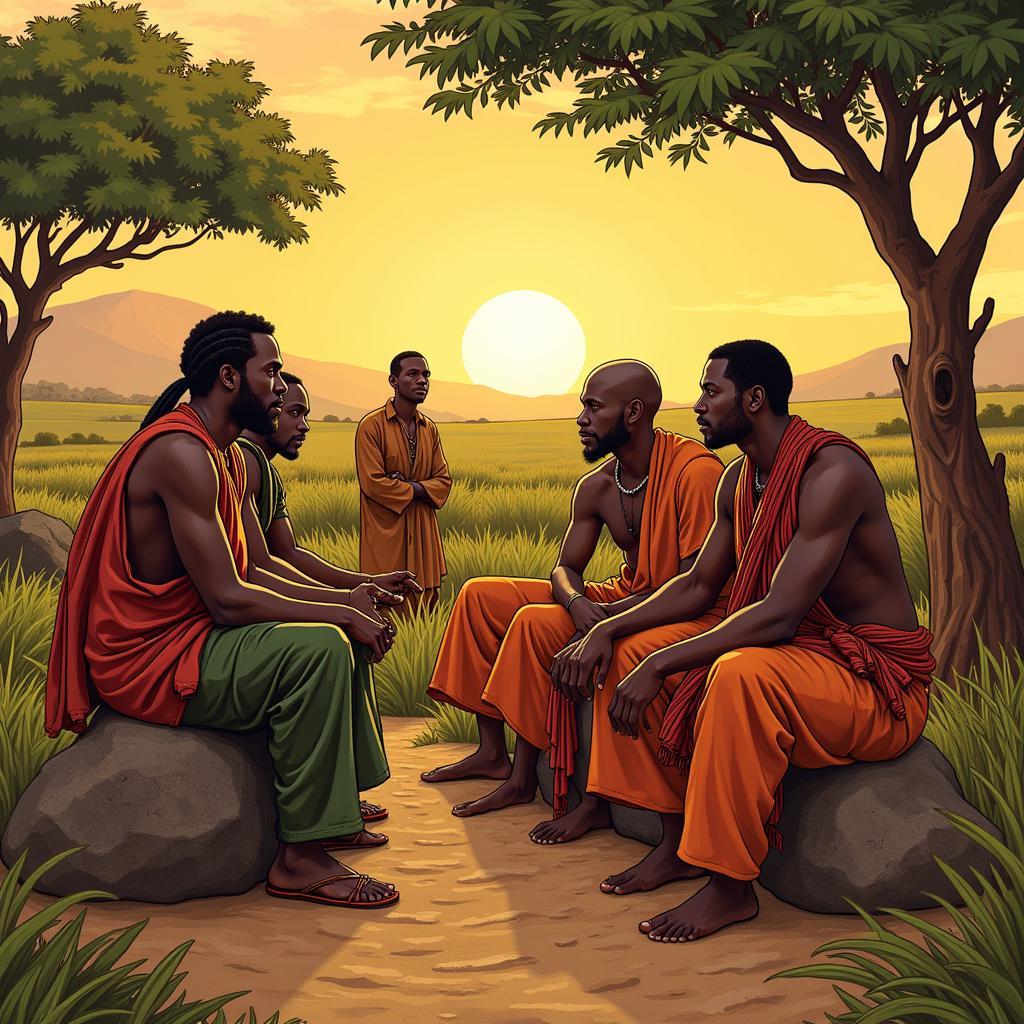Exploring the African Horse: History, Breeds, and Challenges
The African Horse, a diverse group of equines with a rich history interwoven with the continent’s cultures, faces both opportunities and challenges. From ancient steeds to modern companions, their story is one of resilience and adaptation. This article delves into the fascinating world of African horses, exploring their breeds, their significance in local communities, and the pressing issues they face today.
The Diverse Breeds of the African Horse
Across the vast expanse of Africa, a variety of horse breeds have evolved, each uniquely adapted to its specific environment. The Barb, a North African breed, is known for its hardiness and stamina, playing a vital role in the region’s history. Further south, the Basuto pony of Lesotho and the Boerperd of South Africa exemplify strength and agility, essential for navigating challenging terrain. These breeds are not merely animals; they are integral components of the cultural fabric, often symbolizing wealth, status, and tradition.
Horses like the Barb have played an important role in war and trade for centuries. Their endurance and adaptability made them invaluable partners for nomadic tribes and powerful empires alike. Today, these qualities are still appreciated, with many African horse breeds excelling in equestrian sports and endurance riding.
African Horse Sickness: A Major Threat
One of the most significant challenges facing African horses is African Horse Sickness (AHS). This viral disease, transmitted by biting midges, can be devastating to horse populations. More information on this critical issue can be found on african horse sickness. The economic impact of AHS can be substantial, affecting both livelihoods and agricultural practices.
Controlling AHS requires a multi-faceted approach, including vaccination programs, vector control measures, and movement restrictions. Understanding the virus and its transmission is crucial in mitigating its impact. You can learn more about the virus by exploring african horse sickness virus wiki. The World Organisation for Animal Health (OIE) also provides valuable resources and guidelines on managing AHS.
The Role of Horses in African Communities
Horses in Africa serve a variety of purposes, from transportation and agriculture to sport and recreation. In many rural communities, horses are essential for daily life, enabling people to travel long distances, transport goods, and cultivate land. They are more than just working animals; they are often cherished companions, forming strong bonds with their owners.
“The horse is not just an animal; it’s part of our family,” says Dr. Khadija Hassan, a veterinarian based in Tanzania. “It provides for us, connects us, and is deeply woven into our cultural heritage.”
Conservation and Sustainable Practices
Protecting African horse breeds and their habitats is paramount. Sustainable practices are crucial to ensuring their long-term survival. These include responsible breeding programs, promoting equine welfare, and preserving traditional knowledge related to horse care and management. You can also explore options for volunteering on an african horse safari volunteer to contribute to conservation efforts.
Dr. Adewale Ojo, a renowned equine expert, emphasizes the importance of education: “Raising awareness about the value and vulnerability of African horses is key to fostering a culture of conservation.” Through collaboration, research, and community engagement, we can safeguard the future of these magnificent animals.
Conclusion
The African horse, a symbol of strength, resilience, and cultural heritage, plays a vital role in the continent’s diverse ecosystems and communities. Addressing the challenges they face, particularly diseases like African Horse Sickness, and promoting sustainable practices are essential for their continued well-being. By understanding their history, appreciating their diversity, and working together to protect them, we can ensure that the African horse continues to thrive for generations to come. You can also read more about the subject at african hors sickness or african horse sickness oie.
FAQ
- What are the most common African horse breeds?
- Some common breeds include the Barb, Basuto pony, and Boerperd.
- What is African Horse Sickness?
- A viral disease transmitted by biting midges.
- How can I help protect African horses?
- Support conservation efforts, responsible breeding, and equine welfare.
- What is the role of horses in African communities?
- They are used for transport, agriculture, and are often cherished companions.
- Where can I learn more about African horse breeds?
- Research online, consult books, and contact equine organizations.
- What are the symptoms of African Horse Sickness?
- Symptoms vary depending on the form of the disease but can include fever, respiratory distress, and swelling.
- How is African Horse Sickness diagnosed?
- Diagnosis is typically through laboratory testing to identify the virus.
Commonly Asked Questions
Scenario 1: What if my horse shows symptoms of African Horse Sickness?
- Immediately contact a veterinarian for diagnosis and treatment options.
Scenario 2: I want to import an African horse. What procedures should I follow?
- Research and comply with all import regulations and quarantine requirements of your country.
Scenario 3: How can I get involved in African horse conservation efforts?
- Contact organizations working in equine conservation in Africa for volunteer opportunities or to donate.
Further Exploration
You might also be interested in learning more about specific African horse breeds or the cultural significance of horses in different African societies. Explore our website for articles on related topics.
Need assistance? Contact us at:
Phone: +255768904061
Email: kaka.mag@gmail.com
Address: Mbarali DC Mawindi, Kangaga, Tanzania.
We have a 24/7 customer service team.


